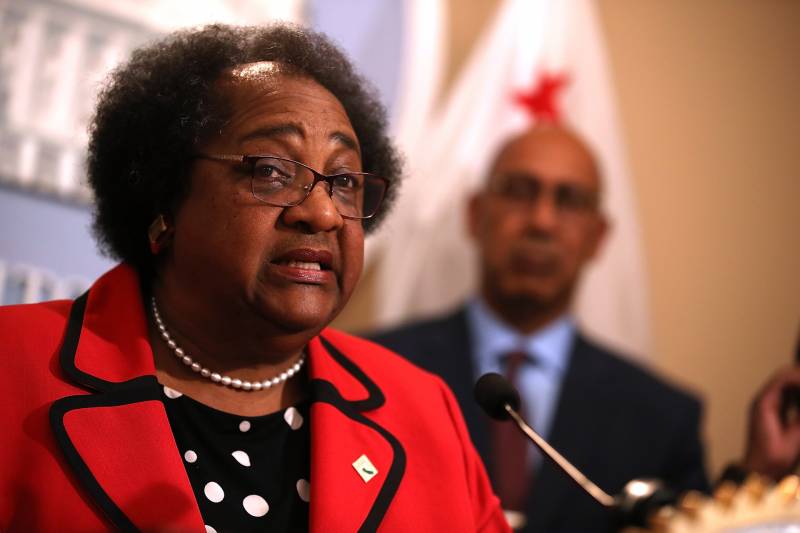"We want to make sure people understand the process, understand what is being asked of them," said Weber, in an interview. "And we want to have a great turnout so that it truly is a mandate from the people one way or the other."
In the state's 2003 recall election, 61% of registered voters cast ballots, a level of turnout in line with most gubernatorial elections in the state. And the table is set for high levels of voter participation this time after California voters turned out in historic numbers during the 2020 election.
And like last year, California voters will again receive a ballot in the mail by default for the recall election, a practice that has driven spikes in turnout.
But with nearly two decades having passed since the last recall, the challenge for Weber and local election officials will be to convey the "nuts and bolts" of the ballot, said Mindy Romero, director of the Center for Inclusive Democracy at the University of Southern California.
The date of the recall election likely won't be announced by Lt. Gov. Eleni Kounalakis until the fall, leaving Weber just a couple of months to spread the word about voting deadlines.
And the recall ballot will also look different from a typical gubernatorial election: Voters will first choose whether they support removing Newsom from office. They then must select their preferred candidate to replace the governor should the recall question win support from 50% plus one of voters.
"If people feel unsure about what their vote even means, that could also potentially deter some people from participating," Romero said. "And for people who aren't as aware of [the election], that tends to, generally speaking, disproportionately impact chronically underrepresented groups," like Black and Latino voters.
Within minutes of announcing that the recall campaign had collected enough valid signatures to force an election, Weber's office tweeted a timeline of the recall's path to the ballot, which includes a period for voters to withdraw their signatures from the recall petition and months for state analysts to determine the election's cost.
"I've discovered that a lot of folks don't understand the process," Weber said. "Even friends and family members have called me and asked, 'Did the governor get recalled? In other words, is it over? What happened? Did we miss something?'"
As the election nears, Weber could play a more active role in shaping the field of candidates.
The Secretary of State can set the qualifications for candidates hoping to get on the replacement ballot, for instance. In 2003, then-Secretary of State Kevin Shelley set the bar low: 65 voter signatures and a $3,500 filing fee. The result was a circus-like field of 135 candidates.

